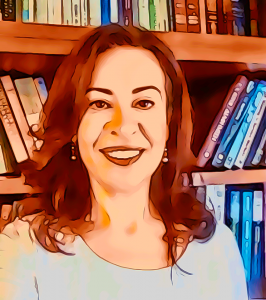219 Letter from Rodoula H. Tsiotsou

Dear early-career women tourism researchers,
Instead of giving you advice, I would like to share some of my experiences and identify some critical elements that you could consider so you can become a respected researcher and scholar in academia.
I have been a researcher over the last 16 years, and I still have the same enthusiasm, passion, and love for research as to when I started my academic career. Before I entered academia, I worked in the business sector for ten years. While I enjoyed my work at a marketing manager, one piece was always missing: research! I discovered research as an undergraduate when I decided to do a research thesis and spend one year collecting and analyzing data. During my masters’ degree, I preferred research assignments while when I was studying for my Ph.D. I realized my passion for research. Research is part of my life, and often people out of academia recognize this as an aspect of my personality. I always critically analyze what I see and hear, and I am interested in exploring new ideas and finding solutions to problems through research. Due to my devotion to research, I have established a marketing research laboratory, MarLab, at my university, so I inspire undergraduate and graduate students to get involved in research and empower Ph.D. candidates and early career researchers.
Moreover, I always wanted to have a comprehensive understanding of the research process. To develop as a researcher, I focused on enriching my knowledge on theoretical developments as well as on research methodologies and analyses. By having a comprehensive understanding of research and its processes, I felt I could be a “complete” researcher and not a “handicapped” and “vulnerable” one. Research literacy and autonomy are very important because my knowledge and devotion to research empowered me and helped me a) keep intact my academic integrity and reputation, b) remain loyal to my values and principles, and c) feel good about myself and the choices I made. Thus, when I was pressured, blackmailed, or bribed, I had the strength to say No! I think my “Nos” determined to a large degree my career and the person I am today! I have not regretted any of them! Sometimes, I feel I should have said a few more “Nos”.
In addition to passion and knowledge about research, organizational/managerial skills were critical as well. Strategically selecting, planning, executing, and evaluating my research projects helped me be effective, efficient, and save time. Again selecting co-authors and research projects to work on required several “Nos” from my part: “No” to research projects that do not interest me; “No” to research projects that do not have any new to add to the literature or do not provide any solutions to real problems; “No” to co-author(s) who did not respect my work; “No” to co-author(s) with no research knowledge, skills, and ethics; “No” to co-authors who wanted to “use my name” without asking me to contribute to the research. At the same time, I was happy to say “Yes” to: a) young scholars and help them understand research better or inspire them to open their minds in a research topic; b) co-authors who helped me as a student and early career researcher, and were willing to collaborate with me at an equal basis; c) co-authors sharing a common passion for research; d) co-authors with whom I could enjoy and have fun during a research project.
I believe that we are doing research to improve our society and build a better future for the next generations. Thus, with our research, we need to create a just and inclusive society while securing sustainability. In this direction, our research should help achieve Gender Equity. Gender equity is a civil right that all of us should support and try to achieve. During my career, I have always tried to support and empower women researchers, especially young ones. Tourism needs women to write new theories and more women to conduct research. Thus, tourism research should address gender equity issues and focus on solving inequality and exclusion problems. Tourism needs women in academic associations and governmental bodies to influence policymaking and reflect their perspectives.
I always remember the people close to me on this beautiful journey. I am very grateful to all my university professors and colleagues for their kindness and generosity. These people inspired, guided, and helped me in developing my career.
I wish you all a bright future!
Best wishes,
Rodoula H. Tsiotsou
University of Macedonia, Greece
PS: I would like to congratulate Sara Dolnicar and Antonia Correia for this great initiative and thank them for the honor of inviting me to contribute to this book. All of us are grateful for the effort and time they invested in this book and for empowering and inspiring female scholars in tourism!

